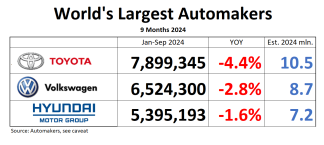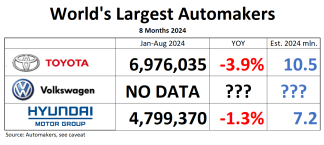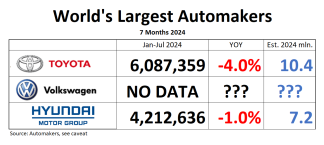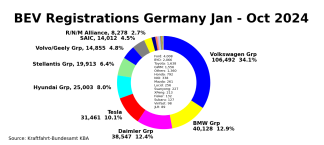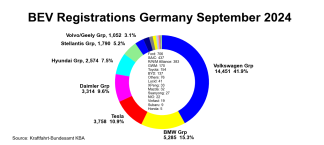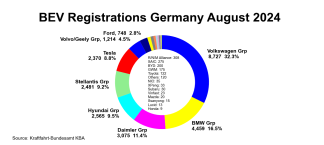The always-exciting tale of Tesla Motors took an especially interesting turn back in September, when Forbes reported that the electric automaker was suing a certain Todd Katz for allegedly impersonating Tesla CEO Elon Musk in an email sent to CFO Jason Wheeler. According to Tesla’s lawsuit, Katz sent an email from “elontesla@yahoo.com” to Wheeler on August 3rd, in which he impersonated Musk and sought “material, non-public” and “trade secret” information on behalf of his then-employer, the energy sector services company Quest Integrity, and its oil industry clients. Now Katz is firing back with a counter-suit alleging that Tesla hacked his Twitter account. Lawyers for Katz and Tesla have failed to settle the matter, and the first hearing for the case has been set for January 12th. Most exciting of all, Katz’s court filings suggest Tesla may have hacked you too.
Tesla’s original complaint against Katz alleges that he violated California Penal Code section 528.5 (“knowingly and without consent credibly impersonating another actual person by electronic means for purposes of harming, intimidating, threatening, or defrauding another person”) and violated section 17200 of the California Business and Professions Code by engaging in deceptive and/or unfair business practices for the purposes of defrauding Tesla and Wheeler and obtaining trade secrets. The complaint also names 10 “John Doe” co-defendants, whose identities “are currently unknown to Tesla” and who Tesla alleges are “responsible in some manner” for Katz’s alleged malfeasance. Tesla’s complaint further alleges that “Katz intended to use [the information he sought from Wheeler] in furtherance of his employer’s and its clients’ business and financial interests.”
At the time the “elontesla” email was sent, Katz was the Chief Financial Officer of Quest Integrity, an engineering and consulting firm with several major oil companies on its client list. According to Tesla’s complaint, “Katz, Quest Integrity, and/or their oil company clients intended to use that non-public and trade secret information to further their own agendas and to harm Tesla.” Katz has subsequently left his job at Quest Integrity (his cross-complaint claims damages including loss of earnings) and the firm is reportedly investigating the matter, although its general counsel told Automotive News “it is clear that unsubstantiated allegations of an alleged conspiracy among Quest Integrity, Team Industrial Services or our major oil company clients are absurd.”
Katz’s demurral, which effectively seeks to dismiss Tesla’s suit, does not deny that Katz sent the email in question but argues that the email was not a credible impersonation and caused no damages to Tesla. Citing the email’s “goofy, grammatically deficient” character, Katz’s points out that Tesla “fails to allege any specific similarities between the email and any email actually created by Elon Musk” and argues that “nobody at Tesla who saw it would believe or did believe that it came from Musk.” Given the hilarity with which the details of the email were received by the media, the claim that Katz’s impersonation lacked credibility seems to have a certain amount of merit.
The more important issue at stake in Katz’s demurral has to do with damages. Tesla’s complaint argues that Katz’s email forced it to launch an investigation which consumed considerable company resources. Katz’s demurral retorts that the email’s lack of credibility made Tesla’s investigation unnecessary and unwarranted: a choice, rather than an unavoidable response. Though Tesla says it investigated “other impersonation attempts and efforts to gain access to the company’s servers” it presents no evidence to tie Katz to any such breaches. “Any expenses that Tesla incurred as a result of this email,” argues Katz’s demurral, “(as with the expenses Tesla incurred by hiring a prominent former federal prosecutor to file this lawsuit), were cased instead by Tesla’s decision to spare no expense in exposing and punishing the sender of this phony and absurd email.” To hold Katz responsible for this decision, the demurral continues, “would result in a breathtaking expansion of the types of claims actionable under the [California Unfair Competition Law].”
According to Katz’s court filings, Tesla’s overreaction to his “goofy” email isn’t just grounds for dismissing Tesla’s complaint, but provides the grounds for his cross-complaint as well. Katz’s cross-complaint alleges that Tesla or one of its employees or agents hacked his Twitter account on the day after the “elontesla” email was sent. Katz alleges that his Twitter account was accessed from an IP address used by the two Best Buy stores nearest the Tesla factory in Fremont, and argues that the timing and location of that login proves that Tesla violated “California criminal statues by hacking into his Twitter account to obtain his identifying information.” For this alleged crime against him, Katz is seeking injunctive relief, punitive damages and compensatory damages of not less than one million dollars from Tesla.
When reports of Tesla’s suit against Katz surfaced, the question quickly arose of just how Tesla found out that Todd Katz is the man behind the “elontesla” email. Katz’s counter-suit claims it worked like this:
“Tesla dispatched an employee or agent from its factory to a nearby Best Buy store, in order to use a Best Buy floor sample iPhone to access Kat’s Twitter account, from an IP address that did not correspond to Tesla. In this way, Tesla sought to conceal its illegal and criminal activities, specifically its violations of California Penal Code § 502(c).”
Katz contends that Tesla’s alleged hack of his Twitter was not a reasonable response to the “goofy” “elontesla” email but an attempt to “identify [him], publicly embarrass, and silence him, and discourage other critics.” Since neither Tesla nor Katz claim to know the identities of the ten “John Doe” co-defendants in Tesla’s original complaint, it’s impossible to know who these individuals are or what means Tesla may have employed to try to identify them. If Tesla did in fact obtain the information it bases its allegation of a conspiracy on information gleaned from Katz’s Twitter account, anyone who has interacted with his account (identified in his cross-complaint as @ValuationMattrs) might be one of Tesla’s ten “John Does,” and hence the target of a Tesla lawsuit.
At around the same time of the alleged impersonation, and the likewise alleged Twitter hack, journalists drowned in a flood of emails critical of Tesla, all from obviously bogus Yahoo accounts, and likely written by the man behind @ValuationMattrs. Depending on how deeply the alleged hackers dug into @ValuationMattrs, a number of journalists might as well be in Tesla’s legal crosshairs. Ominously, a Tesla spokeswoman told the Guardian:
“What we are most interested in discovering is what people or organizations collaborated with Mr Katz in his attempt to gain information illegally from Tesla and who or what companies may have paid him to do so. That is of great concern to us and many members of the public.”
It’s easy to take comfort in the notion that if you have done nothing wrong you have nothing to worry about, but history shows that this can be cold comfort where Tesla is concerned. When I wrote a piece here at Daily Kanban about Tesla’s use of non-disclosure agreements, Tesla very publicly insinuated that I or “my associates” might “have something to gain by negatively Tesla’s stock price.” Tesla has never offered a shred of evidence to support this intentionally damaging smear, letting it linger on as a warning to anyone who might criticize them. Tesla has employed the same tactic against other writers who covered it critically, such as Jerry Hirsch of the LA Times. Tesla’s ambassadors and fan forums spread evidence-free conspiracy theories with a free hand.
Until Tesla and Katz have their day in court, nobody can say for certain who sent the “elontesla” email and why. Until the facts are presented and a judge or jury hands down a judgement, nobody can say for certain if Tesla was unduly burdened by an appropriate response to a serious threat or if it took an unserious email as an excuse to invade the privacy of critics. But just as importantly, until Tesla names the ten “John Doe” defendants it names in its suit against Katz, nobody knows who might yet be accused of being part of the latest alleged anti-Tesla conspiracy.

